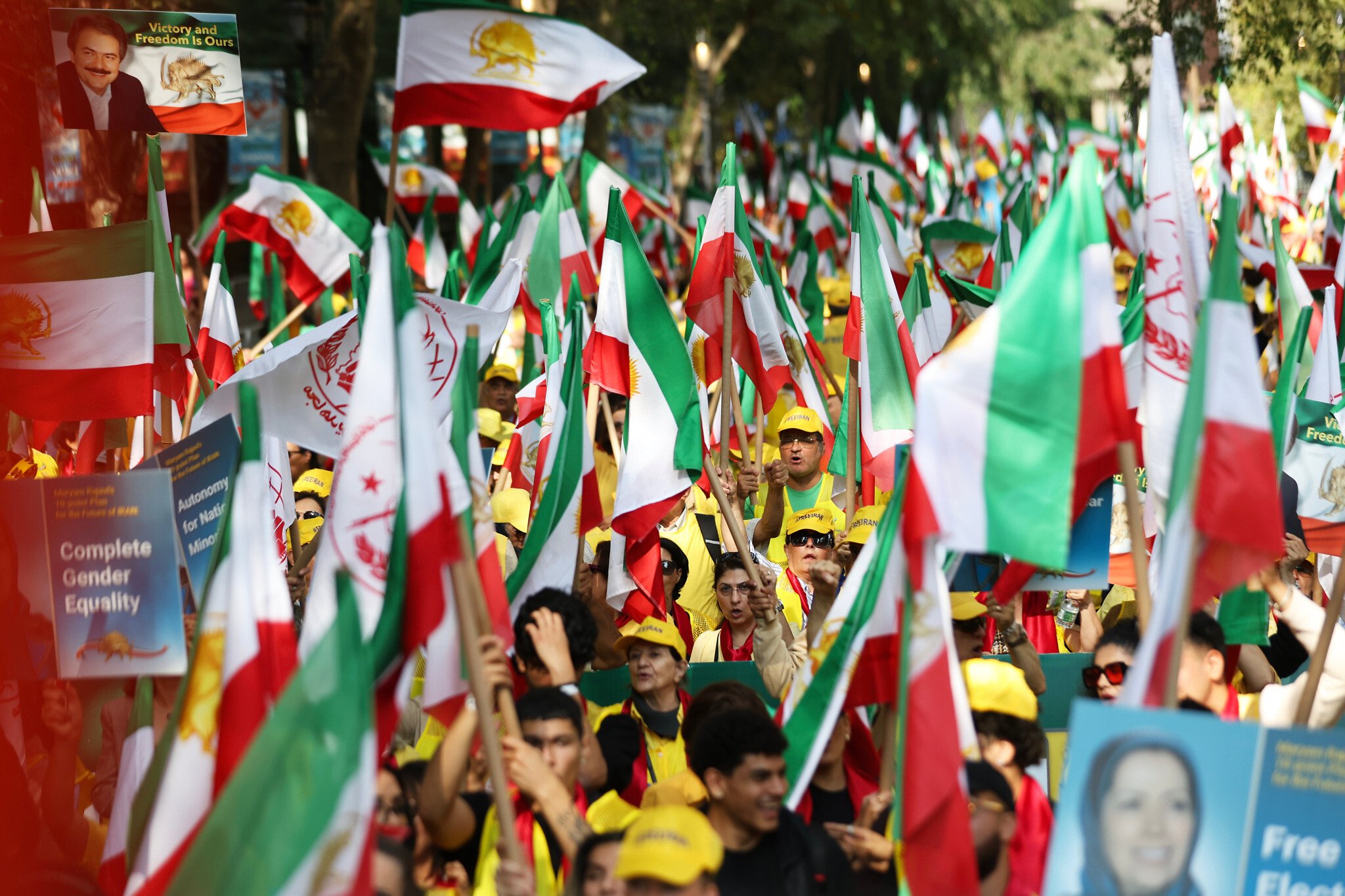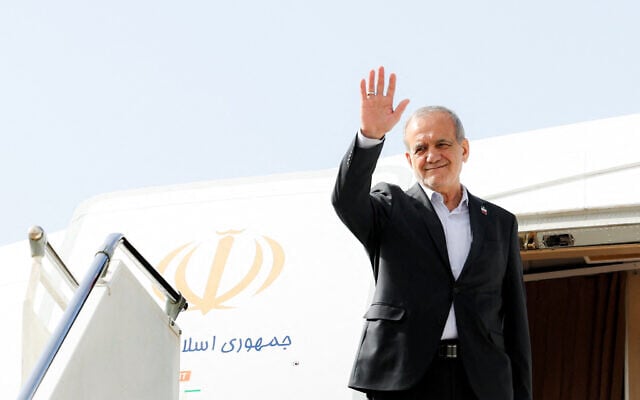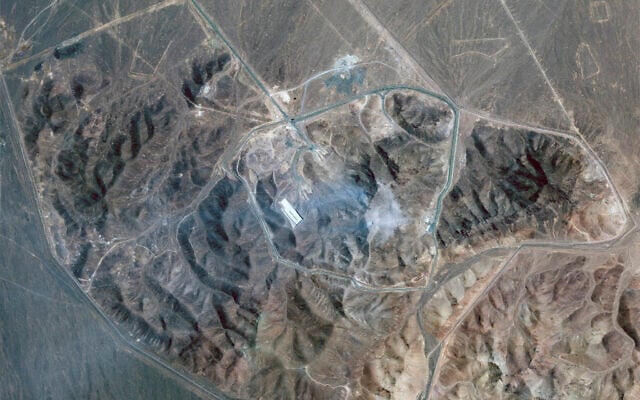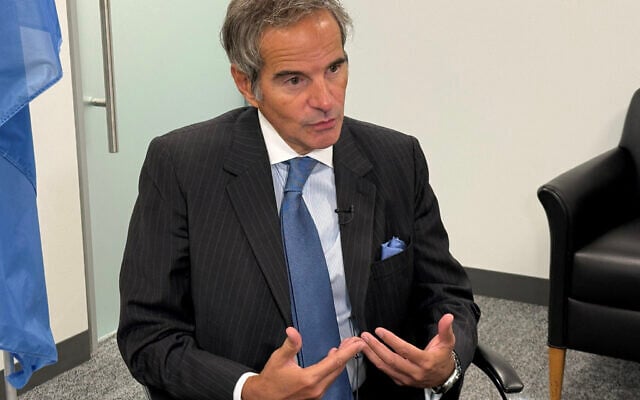


UNITED NATIONS — Iran and European powers remained at loggerheads on Tuesday to strike a last-ditch deal to avert the reimposition of UN sanctions before a September 27 deadline, but both sides left the door open for further talks.
The foreign ministers of France, Britain and Germany — the so-called E3 — along with the EU’s foreign policy chief Kaja Kallas, held talks with their Iranian counterpart on the sidelines of the UN General Assembly.
“Diplomacy has a chance. The deadlines are running, and let’s see. We need to see some real action also on the Iranian side,” Kallas told reporters.
On August 28, the E3 launched a 30-day process to reimpose UN sanctions, which ends on September 27, accusing Tehran of failing to abide by a 2015 deal with world powers aimed at preventing it from developing a nuclear weapon.
The European powers have offered to delay reinstating sanctions for up to six months to allow space for talks on a long-term deal if Iran restores access for UN nuclear inspectors, addresses concerns about its stock of enriched uranium, and engages in talks with the United States.
But three European diplomats said significant gaps remained even though all sides knew what needed to be done to get a compromise.
“For the time being, Iran has not met the conditions, but discussions will continue to explore all possibilities to the fullest,” a French diplomatic source said. “We remain mobilized until the last moment. The ball is in Iran’s court.”
French President Emmanuel Macron said he will meet his Iranian counterpart Masoud Pezeshkian on Wednesday.
“Either Iran makes a gesture and goes to the path of peace and stability and allows the IAEA to do its work or sanctions will be reimplemented,” Macron told the UN General Assembly.

If Tehran and the E3 fail to reach a deal on an extension by the end of September 27, then all UN sanctions, including on its key hydrocarbons sector, will be renewed on Iran, where the economy already struggles with crippling sanctions reimposed since 2018 after US President Donald Trump ditched the pact during his first term.
Tehran has long said its nuclear program is for peaceful purposes. However, it had been enriching uranium to near weapons-grade levels — something with no peaceful purpose — until Israel launched a surprise attack in June on Iran’s nuclear and missile programs.
The US also bombed Iran’s fortified nuclear sites during the 12-day war, which also saw Iran fire hundreds of missiles at Israel.
Iran routinely calls for Israel’s destruction and has funded and armed a series of terror proxies across the Middle East.
“In light of the unjustified and illegal move to begin reinstating the UN Security Council’s sanctions, some ideas and proposals for continuing diplomacy were raised during the meeting, and it was agreed that consultations will continue,” Iran’s foreign ministry said in a statement.

Diplomats have said that the minimum would be for Iran to present a detailed special report on its nuclear sites, including those bombed by the United States and Israel in June, and have some concrete clarity and timeframe on visits of inspectors to some sites.
Even that may not suffice because the United States could ultimately not back a deal and veto a UN Security Council resolution to extend the process.
Speaking to Reuters in New York, UN nuclear watchdog chief Rafael Grossi, whose agency has been negotiating renewed access for his inspectors, said on Tuesday there were “intense” conversations between him, Iran, European powers and the United States to find a solution.
He said a team of inspectors was on its way to Iran should Tehran and European powers reach a deal this week.
“Everything is possible. Where there is a will, there is a way,” Grossi said.

Ahead of the meeting between Iran and the E3, German Foreign Minister Johann Wadephul said the “chances of reaching a diplomatic solution before sanctions are triggered are extremely slim”.
Ali Larijani, a senior adviser to Iran’s supreme leader, criticized the West for “making empty promises,” Iranian state media reported on Tuesday.
Trump said during his address to the UN General Assembly on Tuesday that Iran could never be allowed to possess nuclear weapons.
A few hours later, Iran’s Supreme Leader Ayatollah Ali Khamenei said in a recorded message, “We do not need nuclear weapons, and do not intend to produce one.”
Khamenei flatly rejected any negotiations with Washington, one of the E3’s conditions, over its nuclear work, and said “negotiations with the United States would not serve Tehran’s interests and would prove a dead end.”
Times of Israel Staff contributed to this report

